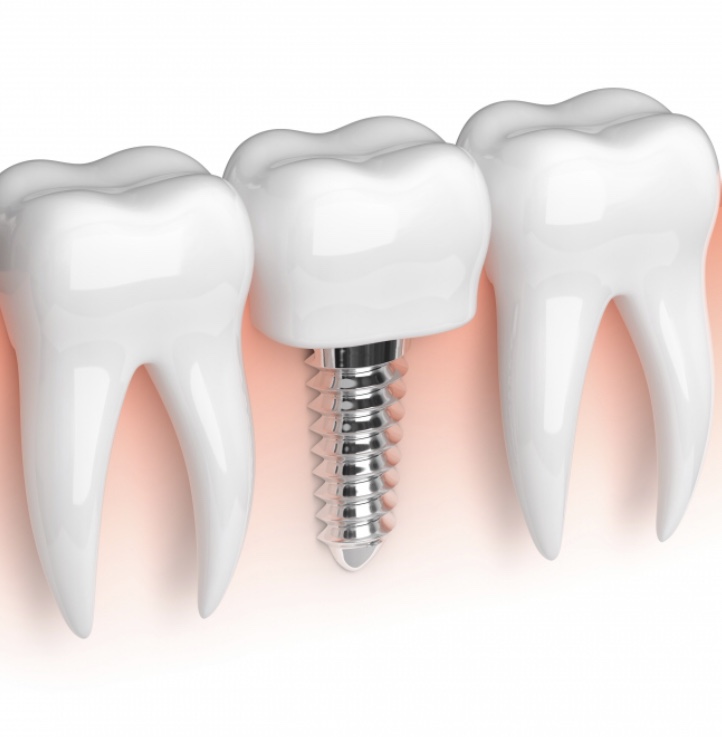
Before development of dental implants, dentures were the only alternative to replacing a missing tooth or teeth.
Implants are screw like structures that are placed in the area of the tooth normally occupied by the root. Implants are anchored to the jawbone and act as a foundation for an artificial tooth or permanent bridge. In some cases, implants can be used to attach dentures.
Not everyone is a candidate for a dental implant so each case will be determined individually. For a successful implant to take hold, a candidate must have proper bone density and have a strong immune system. In all cases, dental implants require strict oral hygiene. Implants are so well designed that they mimic the look and feel of natural teeth. Implants are usually made of a synthetic yet biocompatible material like titanium.
Surgery is necessary to prepare the area for an implant and place the implant in the mouth. Following the procedure, a period of time, typically 3 to 4 months, is required for the implant to take hold and integrate with the bone.
Because implants require surgery, patients are administered anesthesia and, if necessary, antibiotics to help prevent infection following the procedure.
Like any restoration, implants require diligent oral hygiene and proper care to ensure they last a long time.


